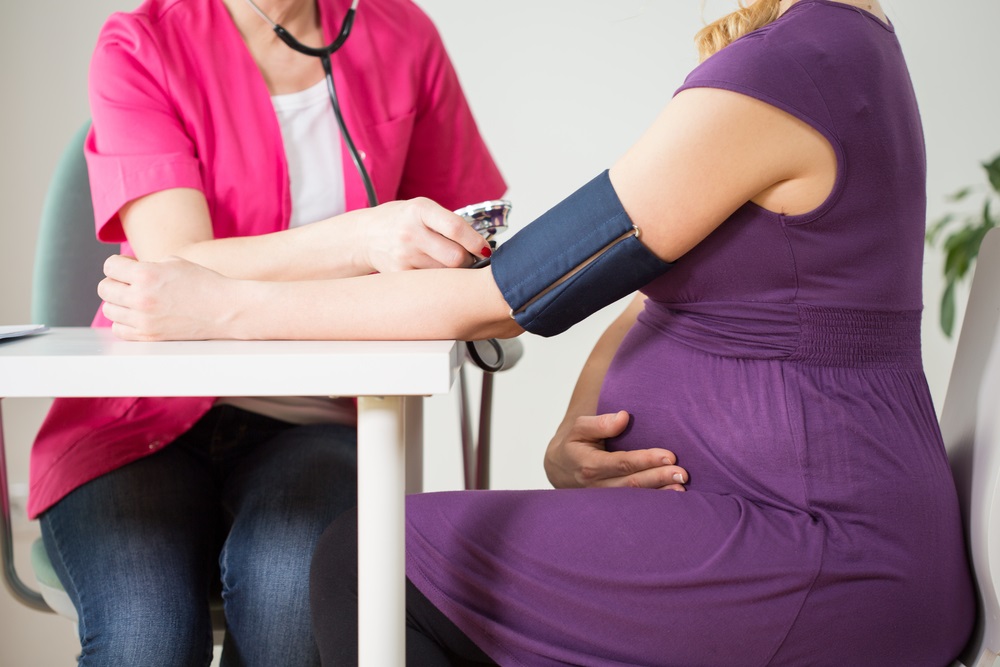Blood pressure management during pregnancy: Preventing complications now and reducing future cardiac risk
Maternal high blood pressure, or hypertension, is known to complicate about 6-17% of pregnancies and this percentage is rising. Having high blood pressure during pregnancy not only increases the risk of pregnancy complications for mother and baby but also increases the longer term cardiac risk of the mother. As a result, recognizing and managing your blood pressure during pregnancy is vital.
Classification of Hypertension in Pregnancy
Chronic Hypertension
The presence of high blood pressure in a woman before she gets pregnant or high blood pressure that is diagnosed before 20 weeks of gestation. Chronic hypertension is also diagnosed if hypertension that developed after 20 weeks of gestation persists for greater than 12 weeks postpartum.
Gestational Hypertension
High blood pressure that develops after 20 weeks of gestation and is without clinical signs of preeclampsia. Gestational hypertension usually resolves after delivery but can continue for up to 6 weeks. Gestational hypertension increases the risk of developing per-eclampsia.
Preeclampsia
A condition characterized by high blood pressure after 20 weeks of gestation AND protein detected in your urine (aka proteinuria). In rare cases, pre-eclampsia can occur after delivery, usually within the first week but is possible up to 3 months postpartum. Preeclampsia can progress to preeclampsia with severe features when it is associated with abnormal blood counts, kidney dysfunction, liver dysfunction, severe abdominal pain, vision changes, difficulty breathing, nausea or vomiting, and severe headache. Preeclampsia is an urgent issue and often results in pre-term delivery of the baby.

Risk Factors for Gestational Hypertension and Pre-Eclampsia
- First pregnancy
- Being pregnant with multiples
- Conception by IVF
- History of gestational hypertension or pre-eclampsia in a prior pregnancy
- Family history of pre-eclampsia in first degree female relatives (i.e. mom or sisters)
- History of hypertension, kidney disease, diabetes, obesity or lupus
- Advanced maternal age > 35 years old
Peripartum risks for Mother and Baby
For the baby, having a mother with gestational hypertension or preeclampsia increases the risk of fetal growth restriction and preterm delivery. For the mother, the risk of uncontrolled gestational hypertension or preeclampsia comes with a risk of kidney failure, stroke, and the development of eclampsia and associated seizures.
Long-term maternal cardiovascular risk
Having gestational hypertension or preeclampsia once not only increases your risk of developing these conditions during future pregnancies but it also increases your long term risk of cardiovascular disease. Women with gestational hypertension or preeclampsia are at higher risk of developing chronic hypertension, cardiovascular disease, heart failure, stroke, chronic kidney disease, elevated cholesterol and diabetes. The risk for developing these cardiovascular conditions later in life increases with the severity of the gestational hypertension and/or preeclampsia, the number of recurrences, and the earlier they occurred during pregnancy.
Prevention of gestational hypertension and preeclampsia
Even before getting pregnant, following a lifestyle that reduces the risk of hypertension is vital. Making sure that you maintain a normal weight, eat a healthful diet that is low in salt, and get the recommended amount of exercise is important. It is also important to check your blood pressure routinely to ensure that it is not elevated prior to conceiving. If it is, talk to your doctor about the possibility of starting blood pressure medications prior to getting pregnant.
Once pregnant, maintaining a healthy lifestyle, ensuring appropriate antepartum medical care, and keeping a close eye on your blood pressures is very important. Again, if your blood pressures are consistently elevated, you need to talk to your doctor about the pros and cons of starting blood pressure medications. There are a number of medications that have been proven safe in pregnancy.
There is also data to suggest that starting a low dose aspirin in the second trimester but before 20 weeks of gestation can reduce the occurrence of preeclampsia in women who are at increased risk of it. Again, please talk to your doctor about the risks and benefits of this.
We at CardioCare know best how to manage blood pressure and reduce cardiac risks. If you need any help, please don’t hesitate to contact us, and our expert cardiologists will help you prevent any cardiovascular disease.
LOCATIONS
Contact us for more information.
